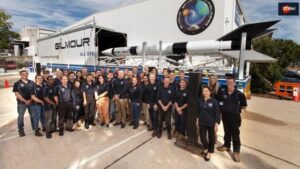European Space Agency Head Supports the ISS Extension to 2030
10th Jan 2022
The work on the ISS is conducted not only by NASA but also by the European Space Agency, the JAXA (Japan Aerospace Exploration Agency), Russia’s Roscosmos, also known as Russia’s Federal Space Corporation, and the Canadian Space Agency. The ISS Extension was given for what’s left of this decade, being directed by the Biden-Harris administration. According to NASA’s administrator Bill Nelson, ISS is at the centre of peaceful collaboration between scientists worldwide, returning for over 20 years of powerful information in education, scientific and technological development. He added that the discoveries made by the ISS benefit humanity.
The European Space Agency Previously Supported the ISS Extension
The European Space Agency has backed up the ISS Extension ever since the proposal was made. JAXA certified its Kibo lab and other related components to support the 2030 ISS extension, Roscosmos proposed to leave the partnership no later than 2025 and to launch a space station of their own. At the same time, Roscosmos has just attached its Nauka (Science) multipurpose lab to the ISS and added the Prichal docking port to the ISS’s segment. Therefore, it looks like the ISS Extension has always had support, even from Russia claiming to leave operations on-site behind.
Putting this information together, it can be concluded that JAXA, the Canadian Space Agency, and ESA will always support the ISS project. NASA has been looking for ways to assist the commercial space companies out there, as the ISS has been initially funded for use only through to the year 2024. Let’s not forget that the Artemis program involving crewed exploration on the Moon is still in place.
According to Nelson, the US continues to participate in the development of ISS will increase competitiveness and innovation. ESA will surely have a lot to say further in this, together with the other nations’ space entities that are involved.
What Will the ISS Extension Bring?
With the support of NASA, JAXA, Roscosmos, the Canadian Space Agency, and the European Space Agency, ISS is expected to bring more information about exploring the Earth’s low orbit, not to mention that commercial activities at the ISS outposts will be directed toward private outposts.






Thank you for your comment! It will be visible on the site after moderation.